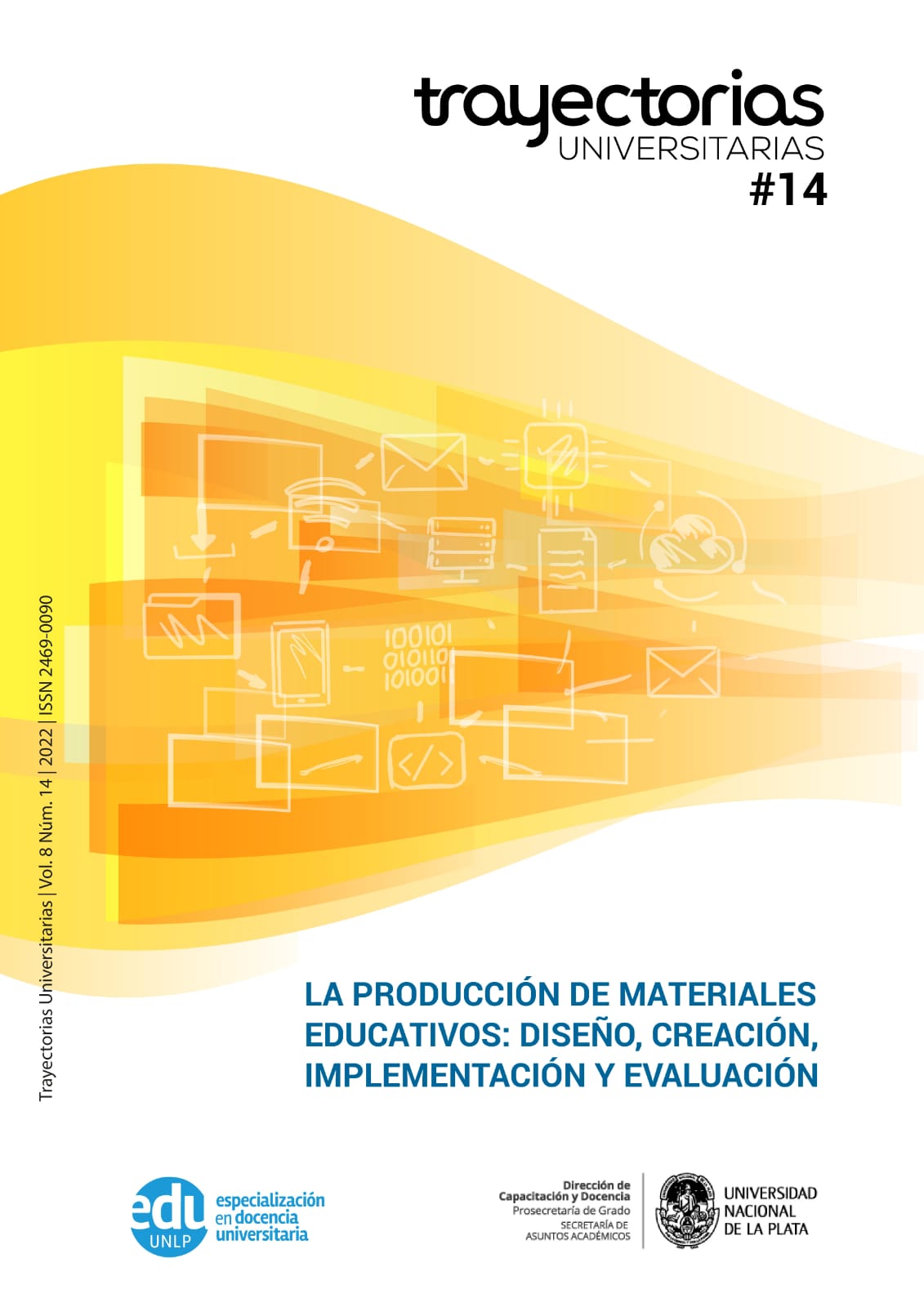Challenges and tensions of the academic model for the comprehensive and situated formation of health careers
Health and community intervention in a pandemic, from pedagogical approaches
DOI:
https://doi.org/10.24215/24690090e102Keywords:
situated educational practice, university extension, community health, health professional profileAbstract
From an emancipatory pedagogical approach, we seek to describe and problematize the learning-teaching processes constituted in fact and extracurricularly from the Faculty of Exact Sciences of the National University of La Plata (FCE - UNLP), in the face of the health emergency by COVID-19 among students. , graduates, teachers and the people in their communities. Of the interventions carried out by multidisciplinary and inter-institutional health teams, territorial action schemes and devices were configured for the promotion, prevention, detection of COVID-19 and prevalent chronic diseases, in various popular neighborhoods of the Capital region of the province of Buenos Aires
From the investigation and characterization of the territorial health contexts, the health status of its inhabitants or the impact on health given by the discontinuity or lack of medical care in the pandemic, valuable training exchanges were generated, both for the inhabitants of the community and for the intervening health teams during the year 2020 and 2021. These were made up of students of careers related to health and its social care, together with teachers, professionals and technicians from multiple disciplines and effector institutions of the provincial health system.
The interventions carried out made it possible to prepare validated tools and protocols to collect socio-health data from more than 33,000 people in various neighborhoods. Clinical and biochemical practices were also carried out for COVID-19 diagnoses (swabs, rapid tests) or other comorbidities, calendar vaccination and/or COVID-19, measurement of clinical signs such as blood pressure (BP), oxygen saturation (Sat%O2), and interactions with people in each neighborhood, advising, listening and accompanying by telephone in confirmed cases of COVID-19.
In summary, this article proposes to reflect and discuss educational models located outside the walls and the necessary training scope, to advance in the constitution of professional profiles that recover knowledge oriented to professional action in community health and social medicine. In this particular case, we will focus on the FCE - UNLP health-related degree courses.
Downloads
Metrics
References
Adissi, G. (2021). Estrategias cualitativas de investigación social en salud. Enfoques frecuentes dentro del universo de investigaciones cualitativas en salud. Dirección de Investigación en Salud. Ministerio de Salud de la Nación, Argentina.
Alzugaray, RA. (2008). Ramón Carrillo: El fundador del sanitarismo nacional. Ediciones Colihue SRL.
Artaza Barrios, O. (2017) Transformando los servicios de salud hacia redes integradas: elementos esenciales para fortalecer un modelo de atención hacia el acceso universal a servicios de calidad en la Argentina. Representación OPS/OMS Argentina.
Coscarelli, MR (2014) “Currículo universitario y formación docente” Morandi, Glenda y Ungaro, Ana (comps) en La experiencia interpelada: prácticas y perspectivas en la formación docente universitaria La Plata, EDULP
De Alba, A. (2007). “El curriculum en el contexto de la crisis estructural generalizada”. En A. de Alba, Curriculum-Sociedad. El peso de la incertidumbre, la fuerza de la imaginación (pp. 91-142). México: IISUE
Sorgentini, HAE. (1997) Fac Cs Exactas, UNLP. Antecedentes, orígenes y trayectoria (1897-1997). La Plata, Editorial Exacta.
Downloads
Published
How to Cite
Issue
Section
License
Copyright (c) 2022 Maria Elena Marson, Guido Mastrantonio

This work is licensed under a Creative Commons Attribution-NonCommercial-ShareAlike 4.0 International License.
La aceptación de un original por parte de la revista implica la cesión no exclusiva de los derechos patrimoniales de los/as autores/as en favor del editor, quien permite la reutilización, luego de su edición (postprint), bajo una Licencia Creative Commons Atribución-NoComercial-CompartirIgual 4.0 Internacional (CC BY-NC-SA 4.0).
Acorde a estos términos, el material se puede compartir (copiar y redistribuir en cualquier medio o formato) y adaptar (remezclar, transformar y crear a partir del material otra obra), siempre que a) se cite la autoría y la fuente original de su publicación (revista y URL de la obra), b) no se use para fines comerciales y c) se mantengan los mismos términos de la licencia.
La cesión de derechos no exclusivos implica que luego de su edición (postprint) en Trayectorias Universitarias los/as autores/as pueden publicar su trabajo en cualquier idioma, medio y formato; en tales casos, se solicita que se consigne que el material fue publicado originalmente en esta revista.
Tal cesión supone, también, la autorización de los/as autores/as para que el trabajo sea cosechado por SEDICI, el repositorio institucional de la Universidad Nacional de La Plata, y sea difundido en las bases de datos que el equipo editorial considere adecuadas para incrementar la visibilidad de la publicación y de sus autores/as.
Asimismo, la revista incentiva a los/as autores/as para que luego de su publicación en Trayectorias Universitarias depositen sus producciones en otros repositorios institucionales y temáticos, bajo el principio de que ofrecer a la sociedad la producción científica y académica sin restricciones contribuye a un mayor intercambio del conocimiento global.





















